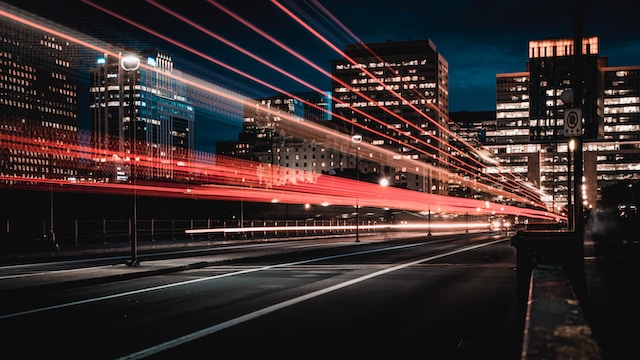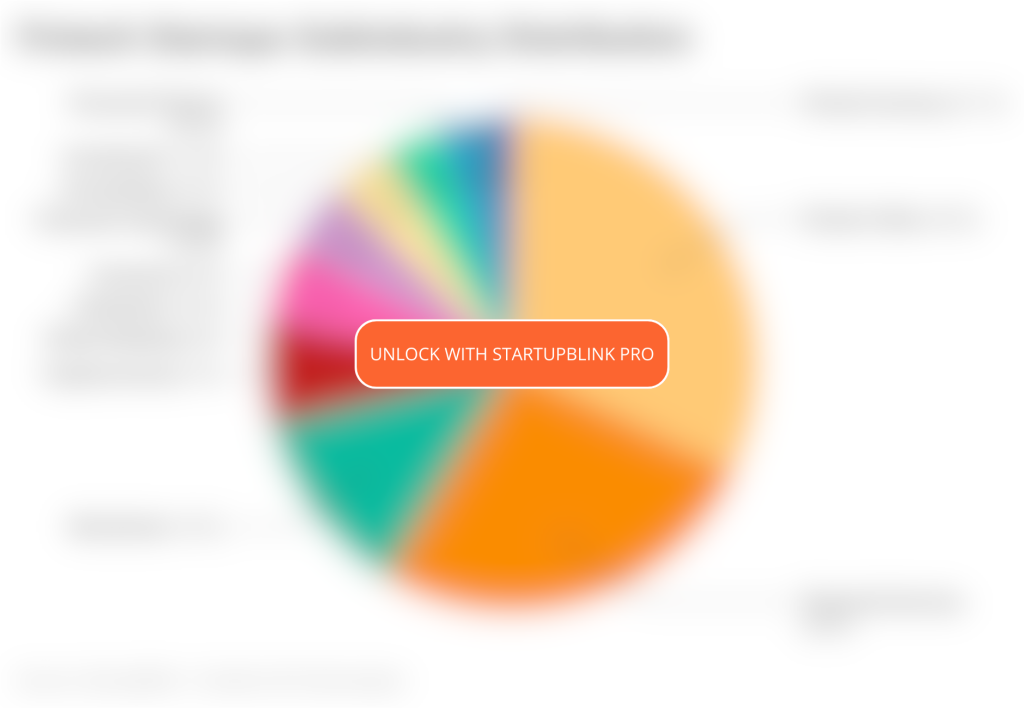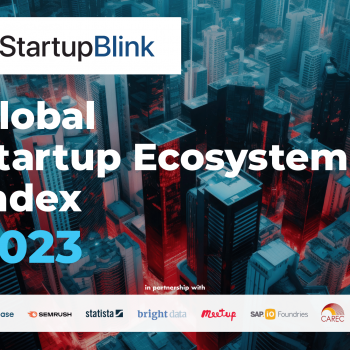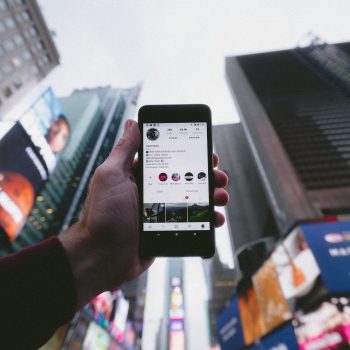The Transportation startup industry accounts for 2.6% of startups in StartupBlink’s Database, while it has 6.5% of unicorns. The industry has giants like SpaceX, Rivian, Aurora and Airbus. With a geographic footprint, particularly dominated by the existence of cities from the United States, China and Germany, the industry experienced a backdrop of 173 cities ranked in 2023 compared to 162 in 2022, showing a trend of less, but more dominant ecosystems in the industry.
This article is just a snapshot of the full report that is available on StartupBlink Pro encompassing more insights and deeper analysis on the Transportation industry.
What's inside the full report?
The report is fully available to StartupBlink Pro.
- Access to full data behind the report.
- Extended Key Insights List
- Analysis on 5 Regions
- Access to Frequently Published Reports like this
Key Insights: Transportation Startup Industry
This section provides an overview of the trends in the Transportation startup industry. A deep trend analysis can be found on the full report available for our pro users.
The sample of Transportation startups shows a modest rise
Transportation startups now constitute 2.69% of the entities on our map, marking a modest rise from the previous year, 2022 in which the share was 2.5%.
Logistics Sub-Industry Leadership
Over half of the startups in the Transportation industry fall under the Logistics subindustry, followed by Automotive that has approximately 20% of the industry.
Stability in Transportation Unicorn Presence
While 2022 saw a peak in unicorn creation within the sector, 2023 has maintained stability with 80 unicorns, indicating a mature yet vibrant market.
Peak Exits in 2023
The year marked a peak in startup exits with 28 exits above US$ 1B, reflecting a robust interest in acquisitions, IPOs, and mergers, showcasing the sector’s health and appeal.
Contraction in the Transportation Startup Pantheon
With 4% of the global startup pantheon, Transportation Pantheon members experience a slight decrease from 11 to 10.
Transportation Startup Ecosystem Insights
In this section of the article, we discuss the top cities in the Transportation startup industry globally. The Pro version of the report gives deeper insights into the ecosystems, as well as offers an analysis of 5 regions for the industry: North America, Europe, Asia Pacific, Middle East & Africa, and Latin America & Caribbean.
1. San Francisco Bay, United States
San Francisco Bay asserts its dominance in the Transportation industry, maintaining the number one spot without any change from the previous year. With a total score of 1.7 times greater than Shanghai, indicating a more competitive environment compared to overall rankings where the total score difference is greater.
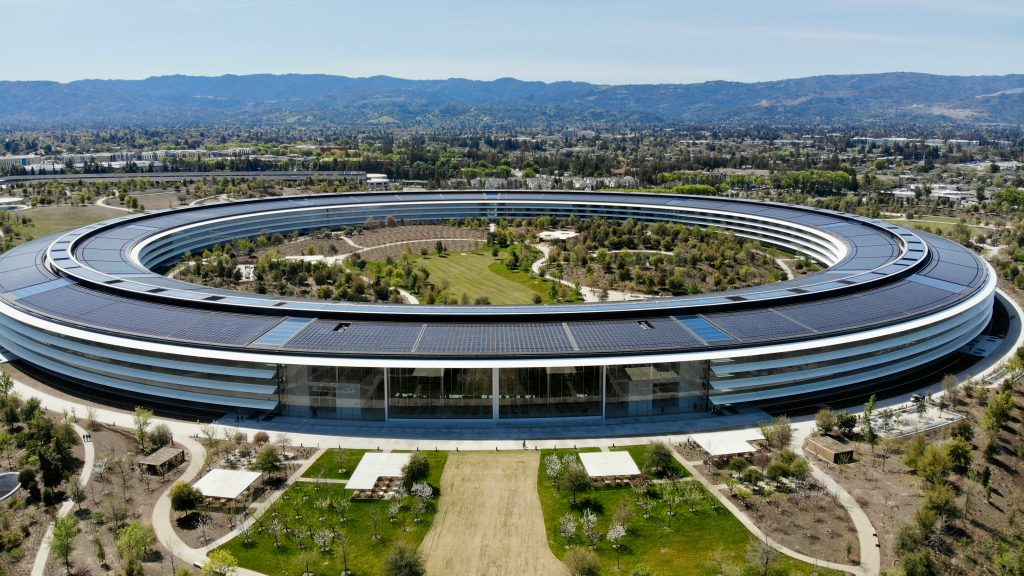
2. Shanghai, China
Shanghai secures the second rank globally in the Transportation industry, showcasing its critical role without any change from the previous year. Its position five places higher than its overall global ranking signifies its exceptional performance and importance in the Transportation industry.
3. Los Angeles, United States
Los Angeles climbs one spot to rank third, highlighting its growing influence in the Transportation industry. This move up reflects a consistent performance and an enhanced focus on the industry, further establishing the United States’ dominance in the industry.
4. New York, United States
New York moves up two places to rank fourth, however, places it two spots lower than its overall global position, suggesting room for growth in this specific sector.
5. Beijing, China
Beijing experiences a slight decline, moving down two places to rank fifth. Despite this, it still manages to perform one spot better in the Transportation industry compared to its overall rank, underscoring its enduring impact in the sector.
6. Bangalore, India
Bangalore slightly falls by one rank to sixth place. However, its position two places higher than its overall global ranking indicates a notable performance and potential in the Transportation industry.
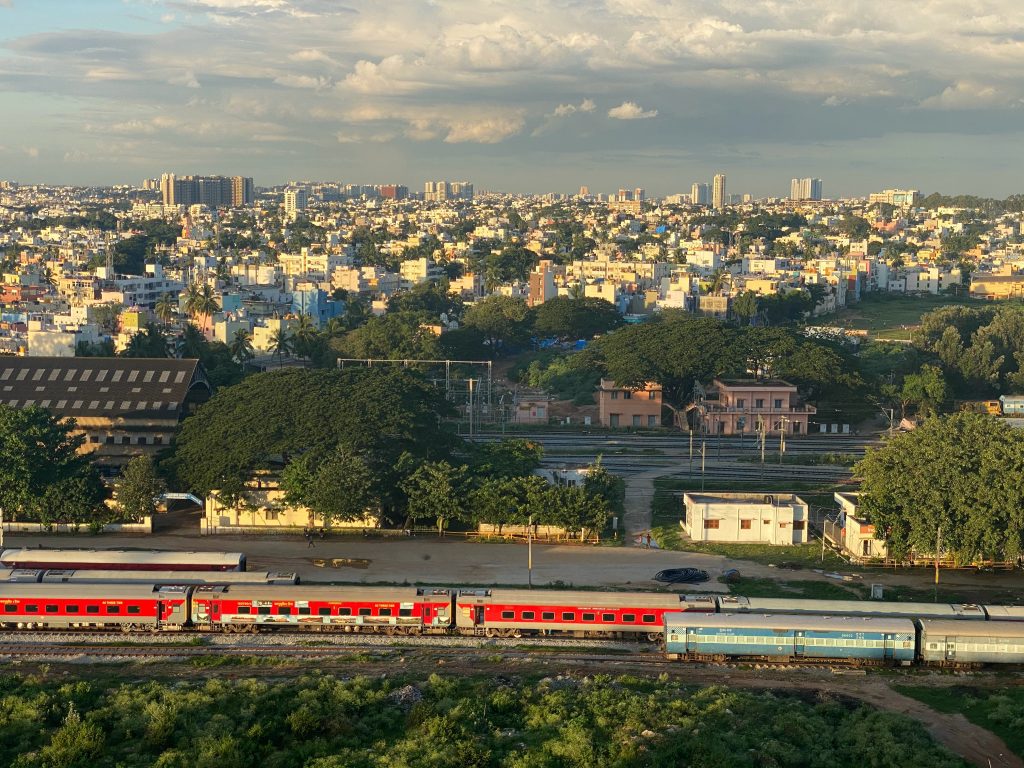
7. London, United Kingdom
London makes an impressive jump, climbing ten spots to rank seventh. This significant jump showcases London’s rapidly growing influence in the Transportation industry, despite ranking four spots lower compared to its overall global rank.
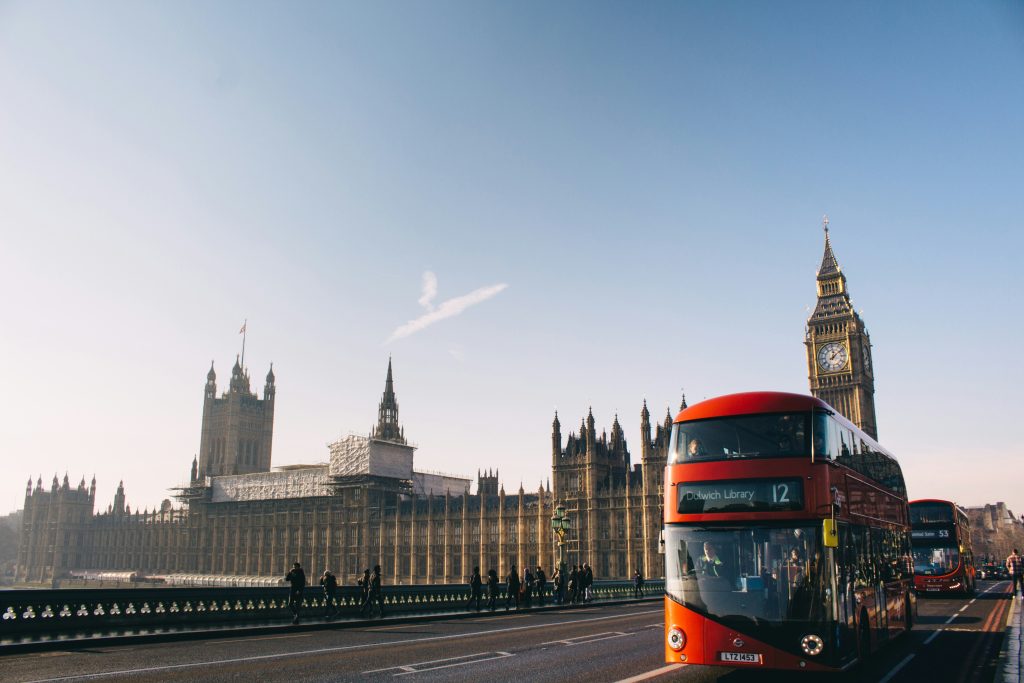
8. Berlin, Germany
Berlin advances three positions to rank eighth, solidifying Germany’s presence in the Transportation industry. This positive movement aligns with Germany’s growing impact in the industry, as reflected by its cities’ upward mobility.
9. Tel Aviv Area, Israel
The Tel Aviv Area maintains its position, ranking ninth. This stability reflects its ongoing contribution to the Transportation industry, slightly outperforming its overall global standing by one place.
10. Munich, Germany
Munich showed a remarkable improvement, jumping eight places to the tenth rank . This substantial rise, along with its position 24 places higher than its overall global rank, highlights Munich as a city that significantly punches above its weight within the Transportation industry.
Bonus: Congratulations to Cordoba & Medellin in Latin America!
Although they are not in the global top 10, Cordoba and Medellin have shown exceptional performance in the Top 10 of Latin America. Medellin ranks 5th in Latin America, which is 4 spots greater than its regional rank. Similarly, Cordoba’s position at 8th in Latin America is 8 spots higher than its regional rank. The further details on regional analysis is available on StartupBlink Pro.
Startup Insights
Top 10 Transportation Startups
As mentioned earlier, the Transportation industry has 2.6% of startups in StartupBlink’s Database. We are ranking the most promising startups every quarter based on their funding amount, employee size, and traffic. You can browse more startups on our map and see where they rank within their industry, region, country, city, or on a global scale.
Top 10 Transportation Unicorns
The Transportation industry hosts 6.5% of unicorns in 2023. You can browse more unicorns on our map of unicorns and see where they rank within their industry, region, country, city, or on a global scale.
Top Transportation Startup Exits
The Transportation industry 2023 has more than 28 exits mapped that are valued above US$ 1 Billion. Here are the Top 10 Transportation Startup Exits, but you can browse more on StartupBlink’s Exits Map.
Top Pantheon Members in the Transportation Industry
The Startup Pantheon is a term coined by StartupBlink and includes organizations and companies from a variety of categories. Some of the pantheons are massive companies that used to be startups, like Microsoft and Apple, and others are cutting-edge initiatives that have produced positive changes for startups. You can view all pantheon members mapped in the industry on the pantheon map, and filter by sub industry as well. The top members of the Transportation Pantheon includes:
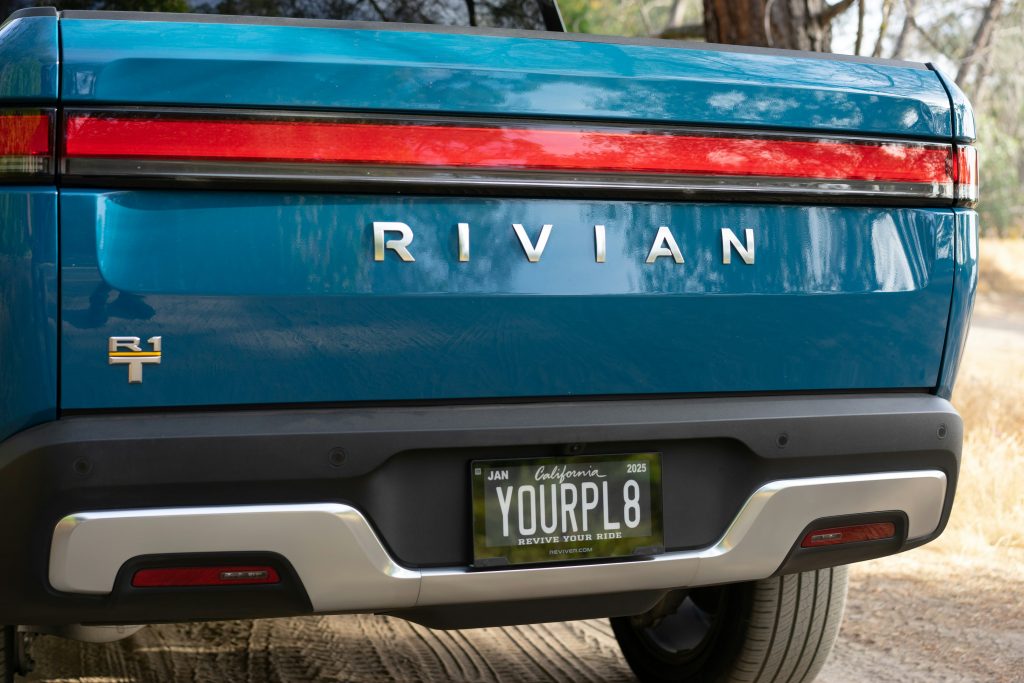
1. DoorDash
Palo Alto, United States
DoorDash provides a technology platform that enables customers to order meals from local restaurants and receive them through fast delivery services. It introduced a convenient and efficient food delivery model, leveraging technology to streamline ordering and delivery processes
2. Rivian
Plymouth,United States
Rivian pioneered the production of electric vehicles, particularly focusing on SUVs and pickup trucks, expanding the market for sustainable transportation options
3. SpaceX
Hawthorne, United States
SpaceX developed reusable rocket technology and launched Starlink, a satellite constellation that improves global broadband coverage, thereby enhancing communication and transportation networks
4. Aurora
Palo Alto, United States
Aurora advances in self-driving vehicle technology, striving towards safer and more accessible autonomous transportation.
5. Rappi
Bogota, Colombia
Rappi operates as a Latin American delivery service offering various products such as groceries, electronics, and meal deliveries
6. Uber
San Francisco, United States
Uber created a ride-sharing and food delivery ecosystem, utilizing technology to match demand and supply efficiently, thus reshaping personal transportation
7. Tesla
Palo Alto, United States
Tesla produces electric cars and promotes clean energy solutions, accelerating the shift away from fossil fuels and toward sustainability
8. Waze
Tel Aviv, Israel
Waze provides a community-driven mapping application that helps commuters find optimal routes based on real-time traffic updates, improving overall commuter experiences
9. Airbus
Toulouse, France
Airbus leads in the manufacturing of aircraft and helicopters, pushing boundaries in aviation technology and fostering global interconnectedness
10. Boeing
Chicago, United States
Boeing develops and manufactures airplanes, rotators, and satellites, shaping the future of aeronautical engineering and advancing global trade and communications.
Methodology
We ensure accuracy in our rankings by relying on objective, quantifiable data instead of subjective tools like surveys. Our algorithm, based on data from the StartupBlink map and global data partners, minimizes assumptions and focuses on measurable results. Yearly improvements enhance algorithm accuracy, with momentum changes influenced not only by ecosystem achievements but also by these enhancements.
The algorithm is refined using data from the StartupBlink Global Map, covering 10-15% of global startup entities. Scores are determined uniformly, but sample sizes vary by location and data source. To address low sample size issues, we collaborate with 100 Ecosystem Partners, offering government agencies complimentary administrative access to curate datasets. Rankings involving Unicorns and Exits consider startup valuations, applying filters to exclude government entities and corporate spin-offs.
The Methodology used in the 11 industry rankings, including Transportation, follows an algorithm aligned to that of the global rankings, but considering only industry-specific parameters and the business score.
